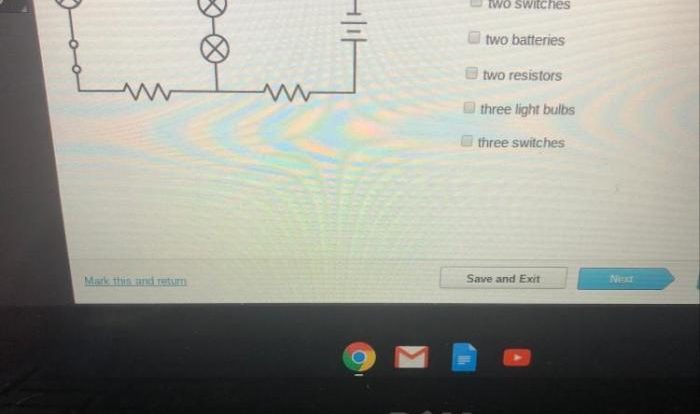Electrical engineering principles and applications 7th ed – Electrical Engineering Principles and Applications, 7th Edition embarks on a captivating journey into the realm of electrical engineering, unraveling the fundamental principles that govern the flow of electricity and their practical applications across diverse industries.
This comprehensive guide delves into the historical evolution of electrical engineering, providing a solid foundation for understanding the concepts that have shaped the modern world. From the analysis of electrical circuits to the design and implementation of control systems, this book offers a thorough examination of the field’s multifaceted nature.
1. Electrical Engineering Principles
Electrical engineering is the branch of engineering that deals with the study and application of electricity, electronics, and electromagnetism. Electrical engineers design, develop, and maintain electrical systems and components, which are used in a wide range of applications, from power generation and distribution to telecommunications and computer systems.
The fundamental concepts of electrical engineering include voltage, current, resistance, and power. Voltage is the difference in electrical potential between two points, current is the flow of electrical charge, resistance is the opposition to the flow of current, and power is the rate at which electrical energy is transferred.
Historical Development of Electrical Engineering Principles
The development of electrical engineering principles can be traced back to the early 19th century, with the work of scientists such as Alessandro Volta, André-Marie Ampère, and Georg Ohm. Volta invented the voltaic pile, the first battery, in 1800. Ampère developed the theory of electromagnetism in 1820, and Ohm formulated Ohm’s law in 1827.
These early discoveries laid the foundation for the development of electrical engineering as a distinct discipline. In the late 19th century, the work of scientists such as Thomas Edison, Nikola Tesla, and Alexander Graham Bell led to the development of the electric light bulb, the electric motor, and the telephone.
2. Electrical Engineering Applications
Electrical engineering is used in a wide range of industries, including power generation, transportation, and manufacturing.
Power Generation
Electrical engineers design and maintain power plants, which generate electricity from a variety of sources, including fossil fuels, nuclear power, and renewable energy sources such as solar and wind power.
Transportation
Electrical engineers design and maintain electrical systems for a variety of transportation applications, including electric vehicles, trains, and airplanes.
Manufacturing
Electrical engineers design and maintain electrical systems for a variety of manufacturing processes, including robotics, automation, and process control.
Societal Impact of Electrical Engineering Advancements
Electrical engineering advancements have had a profound impact on society. The development of the electric light bulb in the late 19th century led to the widespread adoption of electric lighting, which revolutionized the way people lived and worked.
The development of the electric motor in the late 19th century led to the development of electric appliances, which have made our lives easier and more convenient.
The development of the computer in the mid-20th century led to the development of the internet, which has revolutionized the way we communicate and share information.
3. Circuit Analysis

Circuit analysis is the process of analyzing electrical circuits to determine their behavior. Circuit analysis is used to design and troubleshoot electrical systems.
Methods Used to Analyze Electrical Circuits
The methods used to analyze electrical circuits include Ohm’s law, Kirchhoff’s laws, and network theorems.
Ohm’s law states that the voltage across a resistor is equal to the current through the resistor multiplied by the resistance of the resistor.
Kirchhoff’s laws are two laws that relate the current and voltage in a circuit.
Network theorems are a set of theorems that can be used to simplify the analysis of complex circuits.
Use of Simulation Software in Circuit Analysis
Simulation software can be used to analyze electrical circuits. Simulation software allows engineers to create a model of a circuit and then simulate the behavior of the circuit under different conditions.
4. Electrical Machines
Electrical machines are devices that convert electrical energy into mechanical energy or mechanical energy into electrical energy.
Principles of Operation of Various Electrical Machines
The principles of operation of various electrical machines include the following:
- Transformers: Transformers transfer electrical energy from one circuit to another without changing the frequency.
- Motors: Motors convert electrical energy into mechanical energy.
- Generators: Generators convert mechanical energy into electrical energy.
Design and Construction of Electrical Machines
The design and construction of electrical machines is a complex process. Electrical machines are typically designed using computer-aided design (CAD) software.
5. Power Systems
Power systems are the networks that transmit and distribute electricity from power plants to consumers.
Principles of Power Generation, Transmission, and Distribution
The principles of power generation, transmission, and distribution include the following:
- Power generation: Power generation is the process of converting a source of energy into electricity.
- Power transmission: Power transmission is the process of transferring electricity from power plants to consumers.
- Power distribution: Power distribution is the process of delivering electricity to consumers.
Challenges and Opportunities in the Future of Power Systems
The future of power systems is facing a number of challenges, including the need to reduce greenhouse gas emissions, the need to increase the reliability of the grid, and the need to accommodate the increasing demand for electricity.
6. Control Systems: Electrical Engineering Principles And Applications 7th Ed
Control systems are systems that control the behavior of a process or system.
Principles of Control Systems
The principles of control systems include the following:
- Feedback: Feedback is the process of using the output of a system to control the input of the system.
- Stability: Stability is the ability of a system to return to its equilibrium state after being disturbed.
- Performance: Performance is the measure of how well a system meets its design goals.
Design and Implementation of Control Systems, Electrical engineering principles and applications 7th ed
The design and implementation of control systems is a complex process. Control systems are typically designed using computer-aided design (CAD) software.
7. Electronics
Electronics is the branch of engineering that deals with the study and application of electronic devices and systems.
Principles of Electronic Devices
The principles of electronic devices include the following:
- Diodes: Diodes are devices that allow current to flow in one direction only.
- Transistors: Transistors are devices that can amplify or switch electronic signals.
- Integrated circuits: Integrated circuits are devices that contain multiple electronic devices on a single chip.
Design and Fabrication of Electronic Devices
The design and fabrication of electronic devices is a complex process. Electronic devices are typically designed using computer-aided design (CAD) software.
FAQ Explained
What are the fundamental principles of electrical engineering?
Voltage, current, resistance, and power form the cornerstone of electrical engineering principles.
How is electrical engineering applied in real-world systems?
Electrical engineering finds applications in power generation, transportation, manufacturing, and countless other industries.
What is the significance of circuit analysis in electrical engineering?
Circuit analysis provides a systematic approach to understanding and solving electrical circuit problems, enabling engineers to design and optimize electrical systems.
